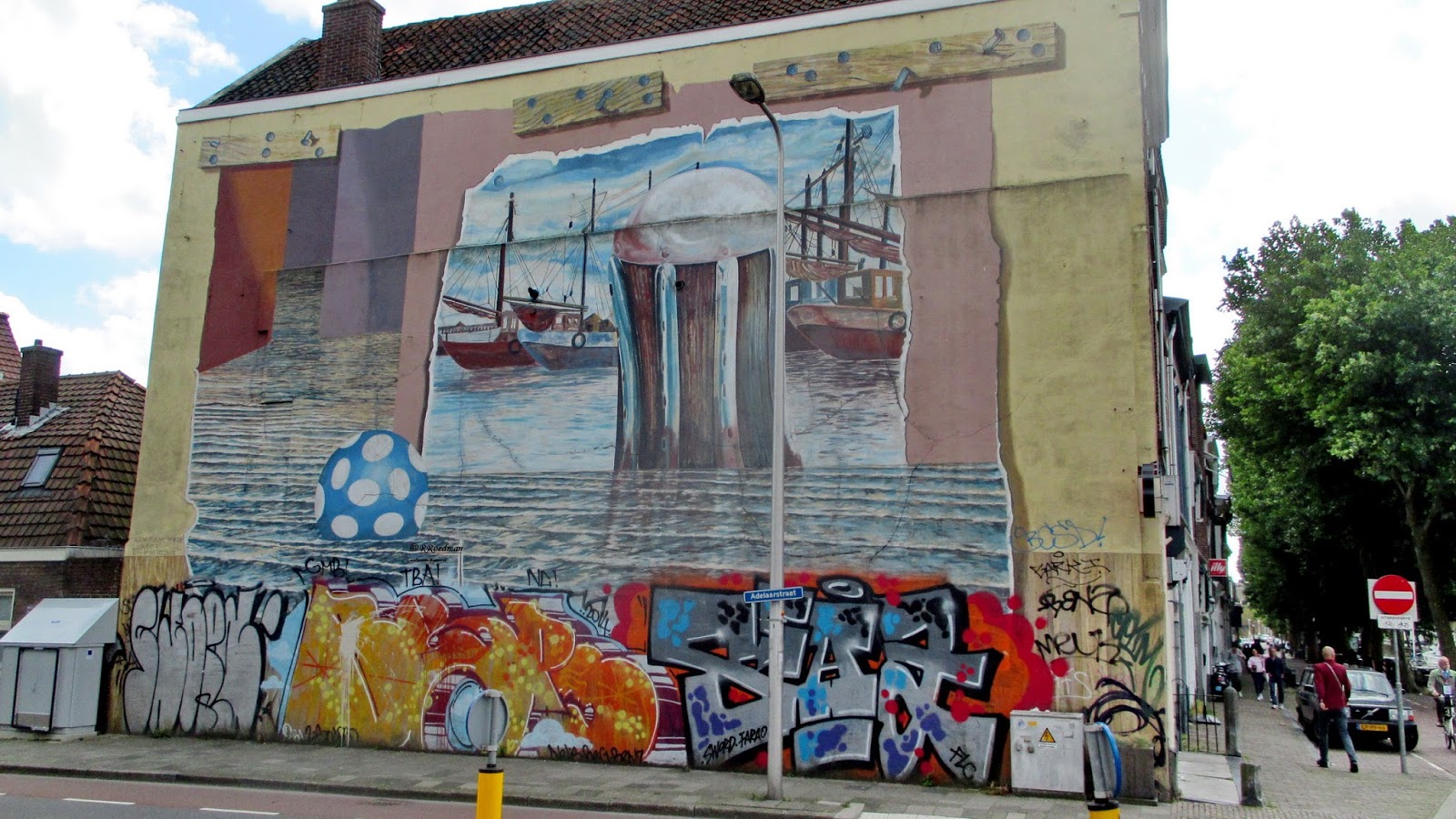The Hidden Canvases of Utrecht's Tunnels
Beneath the bustling streets of Utrecht, a quiet revolution is taking place. In the dimly lit tunnels and forgotten corners of the city, guerrilla artists are transforming these spaces into vibrant canvases. These artists, often anonymous, use the urban landscape to express bold ideas and challenge societal norms.
Techniques and Styles: A Diverse Palette

Guerrilla art in Utrecht is as varied as the artists themselves. Some use stencils to create intricate designs quickly, while others prefer freehand spray painting, allowing for more fluid and expressive works. Wheat pasting, a technique involving paper and adhesive, is also popular for its ability to cover large areas with detailed imagery. Each method brings a unique texture and depth to the urban environment.

Notable Works and Their Impact

One of the most striking pieces is a mural depicting a giant eye, painted on the wall of a pedestrian underpass. This piece, known locally as "The Watcher," has sparked conversations about surveillance and privacy in modern society. Another notable work is a series of colorful birds painted along a bike path, symbolizing freedom and the fleeting nature of life.
The Artists Behind the Movement
While many guerrilla artists remain anonymous, some have gained recognition for their contributions to the city's cultural landscape. An artist known only as "Shadow" has become famous for their shadow-themed pieces, which play with light and perspective to create illusions of depth and movement. Another artist, "Luna," is known for her ethereal portraits that seem to glow in the dark, adding an element of surprise for nighttime passersby.
Challenges and Controversies
Despite its growing popularity, guerrilla art in Utrecht faces challenges. Legal issues are a constant concern, as unauthorized art is often removed by city officials. However, some local businesses and residents have embraced these artworks, seeing them as a way to enhance the urban environment and attract visitors. The debate continues over whether these pieces should be preserved or removed, highlighting the tension between artistic expression and public policy.










